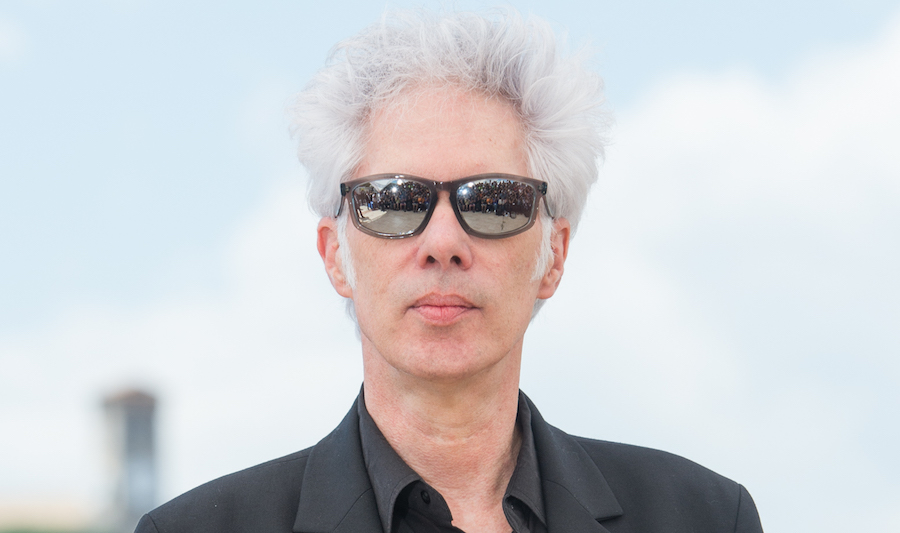Since his first film, 1980’s “Permanent Vacation,” Jim Jarmusch has done Jim Jarmusch. He’s never been the type of independent filmmaker who was working towards studio work or comic book movies. Every few years, the world receives a new Jarmusch, each gradually paced, minimalist, serious yet playful. This year we’ve gotten two: “Gimme Danger,” his doc about The Stooges, was released in October. And now there’s “Paterson,” in which Adam Driver plays a bus driver and poet (also named Paterson). We see a week in his life, each day more or less like the last and the next. It’s a very calming film, especially when seen now, though don’t think of it as trendy. Jarmusch, 63, spoke to us over the phone about not reading too much into his films, the connection between his two very different films and that time he almost died from poisoning.
I’ve read some pieces (and even written one) where people have spoken about how this is a great, calming, therapeutic film to watch right now, with everything’s that going on. But I don’t want to cheapen it or make it sound like you’re ever responding to trends. Sometimes people are a little over-eager to find autobiography in art. RELATED: The top 10 best films of 2016 (plus 15 more that were pretty great, too) I think a lot of the time with art cinema, looking for significance and symbolism and what it all means is often the least interesting part. I know “Only Lovers Left Alive” was a project you nursed for about eight years. Was “Paterson” a similar situation? You made “Gimme Danger,” your Stooges doc, around the same time. That might have been something, going between a doc about a loud band and making this very quiet film. I think “Paterson” pairs well with “Only Lovers Left Alive,” because they’re both portraits of a relationship where each person is OK being apart at times. They don’t have to be joined at the hip at all times. They each have their own things going on separate of the other. I don’t want to say this film has a message, but it does speak to how we shouldn’t let the past get us down. So many of your films incorporate different art forms: poetry, books, music, paintings. I sometimes worry that a lot of today’s film fanatics only know about film. Wait, how did you get into mycology? I did want to ask a basic question, which is: Why did you choose “Island of Lost Souls,” the 1932 film of “The Island of Dr. Moreau” with Charles Laughton, to be the film Paterson and Laura go see in the Saturday segment of the film? And the film inspired Devo’s first album title, “Q. Are We Not men? A. We are Devo.” Was that accidental?
Well, hopefully not. People read too many things in my films sometimes. Like in “Paterson.” They say, “Well, he doesn’t have a cell phone. Are you against digital technology?” Well, no, the character doesn’t have a cell phone because he chooses not to. His wife [Laura, played by Golshifteh Farahani] has a laptop and an iPad. It’s not a self-portrait.
They’re also always looking for significance. At the Toronto Film Festival Q&A, which was a lovely audience, I had to start teasing them because they wanted to know the significance of everything in the film. I had to say, “We’re going for that anti-significance significance thing. [Laughs] Don’t look so deeply. Let the details accumulate, and don’t worry about what they all mean, because I don’t know! I have no idea!”
It can be, yeah. It depends. Sometimes people layer those things in; there are a lot of symbols and things going on. Sometimes it’s just like people are imagining things that aren’t even there. I think it was e.e. cummings who said, “You can understand a poem without knowing what it means.” People have to let that analytical side go sometimes. In the past when people have asked Bob Dylan what a song he wrote meant, he’d flip out. “I don’t know what I means! It’s not my job! Why are you asking me that! I wrote the thing! I don’t’ know!” So it can go both ways, I guess.
Yeah. It started 20-some years ago. I went to Paterson [New Jersey] on a day trip. I had a vague idea about making a film about a working class poet named Paterson, from Paterson. But that was it. I wrote some notes and put them in a drawer. I kept reading about Paterson’s history, not towards any film, but just out of interest. I wrote the script about six years ago, and in between I worked on other things. I wasn’t just letting it ferment, I was just waiting to do it.
There is something that connects them, because The Stooges are working class artists. They really worked at what they believe in. They worked at their music. The world didn’t embrace it, but they meant it. And Paterson is an artist, very low-key. He’s not out to become famous. He’s, in a way, too naive to have his poems published, even though his partner, Laura, would like to have the world see them someday. But they are both, he and Laura, creative people who live the way they choose. And so do The Stooges. But stylistically they’re very different.
They love each other in both films for who the other person is. In “Only Lovers Left Alive,” she’s living in Tangier. Maybe she needs a few years break from him, because he’s moody and a little difficult. But she certainly loves him more than anything. She would do anything for him, and vice versa. And “Paterson,” we only see one week in their lives, but the film is not about conflict. It’s about … I don’t know what it’s about. [Laughs] It’s about observing small things and letting them accumulate, and knowing that every day of your life is a kind of variation on the previous and the next. It’s about just appreciating things and observing details that our consciousness allows us to.
Yeah, because you can’t change some things. Worrying about them is only damaging. That’s a hard lesson to learn. I’m still trying to learn that every day. Put your energy on the things you can affect, and the things you can’t, try not to beat yourself up over them, because you’re not going to be able to change them.
I’m a self-proclaimed dilettante. There are too many interesting things in the world. I can’t just learn about one. But filmmaking is such a beautiful art form because it incorporates all these other forms. It incorporates music and time passing and acting and writing and photography and color, or lack thereof. It has everything in it. So to seems crazy to only study films. And I’m a film geek; I live for films. But I read books and I listen to music and I’m an amateur mycologist, which is the study of mushroom identification. I have a lot of interests. I just get excited for all the things I don’t know. To regulate myself to only movies would be like, “Why?” [Laughs]
Oh boy, that’s a long story. Some 20 years ago I ate in a nice Italian restaurant in New York. I went home and I felt fine. Three hours later all my internal organs were starting to shut down. I was rushed to an emergency room. My stomach was pumped and I was given IVs. The next day I was told, “If you had gotten here an hour later you wouldn’t have gotten here at all. You would have been gone.” They asked me, “What toxic substance have you been near, because you’ve been badly poisoned.” And it turned out I had some kind of pasta with mushrooms, and something got slipped in there. I had wild mushrooms. And I said, “Wow, that’s heavy, I almost died.” Then I just started reading a lot about mushrooms, and how incredible they are, and how they aren’t plants or animals. In fact, their DNA is closer to animals. I could go on and on. I’m just an amateur mycologist, but it’s one of the things I’m interested in.
In the script there wasn’t a specific film mentioned. I was maybe going to have a ’70s zombie movie. Then I thought of “Island of Lost Souls,” because it’s so dark and strange and it’s black-and-white. And the panther girl in the movie looked a lot like Golshifteh to me.
It did! And I’m from Akron, Ohio, as are Devo. The connection gets deeper.
It wasn’t intended consciously. But I think as Akronites, sometimes we work on a level that isn’t wholly conscious, you know what I mean? In fact, I have a beautiful Rorschach photograph I’m looking at right now by Mark Mothersbaugh [of Devo] in my house. Akron is always looming. And Chrissie Hynde is always a presence on the turntable or something. There’s a lot of Akron stuff around me. I can’t get away from it!
Jim Jarmusch talks ‘Paterson’ and that time he almost died

Getty Images
Follow Matt Prigge on Twitter @mattprigge






















